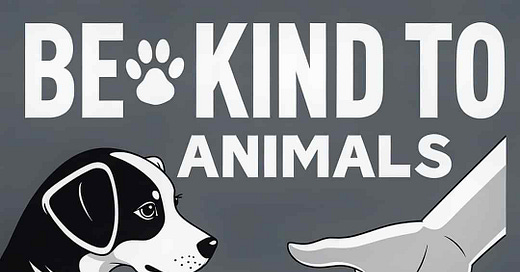9 Examples of How Animal Abilities Surpass Humans
With attention to a revolutionary animal scientist, Frans de Waal (1948–2024)
On my way to teach an undergraduate course on the Science of Well-Being at George Mason University (here), I passed a tiny poster pasted to a tree, “Free lecture by Frans de Waal at 2pm on moral behavior in animals.”
Dr. Frans de Waal! Listed by Time Magazine as one of the “most influential people in the world” for good reason.
Humans like to anthropomorphize. We ascribe human traits to what is nonhuman to bridge the gap—our version of emotional spackle. So computers become temperamental; dogs enjoy wearing sweaters. But what can we learn if we reverse the process and look for animal characteristics in ourselves?
Dutch-born primatologist Frans de Waal, 58, has been asking and answering that question for more than 30 years. The C.H. Candler professor of primate behavior at Emory University in Atlanta, De Waal sees humans as bipedal, bipolar apes. Trained in zoology and ethology, he has spent his career as a learned contrarian. Biologists and evolutionary scientists focus on competition, on what drives us apart. De Waal focuses on what brings us together: reciprocity, empathy, conflict resolution. Primates and Philosophers, De Waal's eighth book, released last year, argues that morality is not a high trait we acquired late but is etched into our instincts.
That's not to say we always behave. There are Machiavellian leaders among chimps, for example, and De Waal believes there is a straight line to be drawn from that to human politics.
I did what any professor would do when realizing a genius is nearby. I sent a class email, “Whatever you might learn from me today is nothing compared to meeting Dr. Frans de Waal, perhaps the greatest living researcher on chimpanzee social behavior and what it says about evolution. Class has been moved to Enterprise Hall Room 80 at 2pm. This is when you get the payoff for your tuition. See you there! Notice that I didn’t ask. Be there.”
I kid you not. Less than 20 people attended before my class arrived. These are the moments when you realize our educational system sucks.
As an added insult, I just found out Frans de Waal died yesterday - 8 months later. No mention of him in my department or university. No homages by scholars on my social media pages. Another reminder to do great things because you love the work. Assume nobody in the workplace will remember you in 20 years.
If Philip Zimbardo’s seminal work on shyness and time perspective theory was ignored (click here) and Paul Wong’s decades of research on curiosity, death, and meaningful living were ignored after their demise (click here), what are the odds someone will reflect on contributions by you and me? So go attend to friends, family, mind and body, and whatever it is that consistently offers delight, love, and a sense of purpose.
Humans, in their hubris, often crown themselves as evolution’s apex. Mistakenly, we assume the directional arrow of wisdom primarily moves one-way: from humans to non-humans. This partially explains why we feel comfortable treating creatures with profound higher levels of consciousness as pets and place others in cages for Sunday afternoon entertainment.
Consider fascinating examples of how various animals exhibit abilities that surpass humans:
Dolphin friendships. They can recognize a friends’ signature whistle even if they haven’t made eye contact in twenty mother fucking years! The features of close friends are encoded in their brains (reminds me of the work of
- detailed in his incredible comic book - here).
[NOTE: I try to open paid subscriber issues with content that is valuable to everyone. Do consider supporting this work with a paid subscription and get access the Provoked community and 200+ article archive.]




